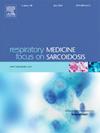了解囊性纤维化护理模式变化的可接受性
IF 3.5
3区 医学
Q2 CARDIAC & CARDIOVASCULAR SYSTEMS
引用次数: 0
摘要
背景囊性纤维化(CF)门诊治疗已发展成为一种混合模式,其中包括远程医疗和面对面复查。本研究从CF患者和CF患儿家长的角度探讨了混合护理模式的可接受性。最大差异抽样寻求来自不同社会经济水平和地理位置的参与者。访谈指南和主题分析采用了可接受性理论框架(TFA)来探讨可接受性的各个领域。访谈的主要主题与 TFA 领域一致。这些主题是[1]:混合护理模式使生活更轻松[2],混合护理有效但不全面[3],混合护理需要适应个人需求[4],对混合护理的信心由内部和外部因素决定[5],混合护理易于参与[6],接受混合护理需要牺牲面对面护理的重要方面[7],混合护理降低感染风险并有助于生活正常化。可接受性的高低不一,取决于患者是否愿意牺牲面对面护理的重要方面,以获得通过远程医疗接受部分护理所带来的便利、安全和正常生活。因此,应与 CF 患者和 CF 儿童的父母协商,制定个性化的护理模式。本文章由计算机程序翻译,如有差异,请以英文原文为准。
Understanding the acceptability of the changing model of care in cystic fibrosis
Background
Cystic fibrosis (CF) outpatient care has evolved into a hybrid model, incorporating telehealth and face-to-face reviews. This study explores the acceptability of the hybrid model of care from the perspective of people with CF and parents of children with CF.
Methods
People with CF and parents of children with CF from eight Australian CF centres participated in semi-structured interviews. Maximum variation sampling sought participants from varied socioeconomic levels and geographical locations. The interview guide and thematic analysis utilised the Theoretical Framework of Acceptability (TFA) to explore domains of acceptability.
Results
Ten adults and 16 parents of children with CF were interviewed. The major themes from the interviews aligned with the TFA domains. These were [1]: life is easier with a hybrid model of care [2], hybrid care is effective but not comprehensive [3], hybrid care needs to adapt to individual needs [4], confidence in hybrid care is determined by internal and external factors [5], hybrid care is easy to engage in[6] accepting hybrid care involves compromising valued aspects of face-to-face care [7], hybrid care reduces infection risk and helps normalise life.
Conclusion
The addition of telehealth to the traditional model of CF care is acceptable overall. The level of acceptability is variable and is determined by the willingness to compromise valued aspects of face-to-face care to obtain the convenience, safety and normality that receiving part of care through telehealth allows. Therefore, the model should be personalised in consultation with people with CF and parents of children with CF.
求助全文
通过发布文献求助,成功后即可免费获取论文全文。
去求助
来源期刊

Respiratory medicine
医学-呼吸系统
CiteScore
7.50
自引率
0.00%
发文量
199
审稿时长
38 days
期刊介绍:
Respiratory Medicine is an internationally-renowned journal devoted to the rapid publication of clinically-relevant respiratory medicine research. It combines cutting-edge original research with state-of-the-art reviews dealing with all aspects of respiratory diseases and therapeutic interventions. Topics include adult and paediatric medicine, epidemiology, immunology and cell biology, physiology, occupational disorders, and the role of allergens and pollutants.
Respiratory Medicine is increasingly the journal of choice for publication of phased trial work, commenting on effectiveness, dosage and methods of action.
 求助内容:
求助内容: 应助结果提醒方式:
应助结果提醒方式:


